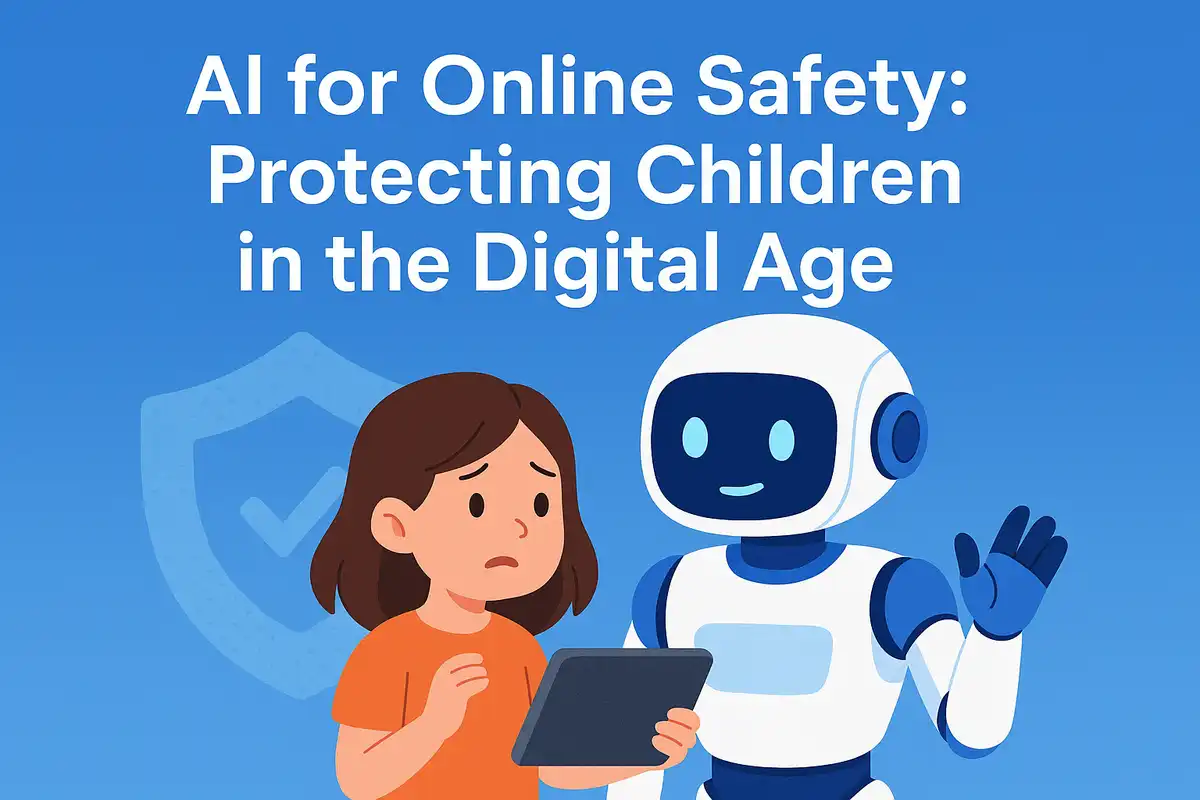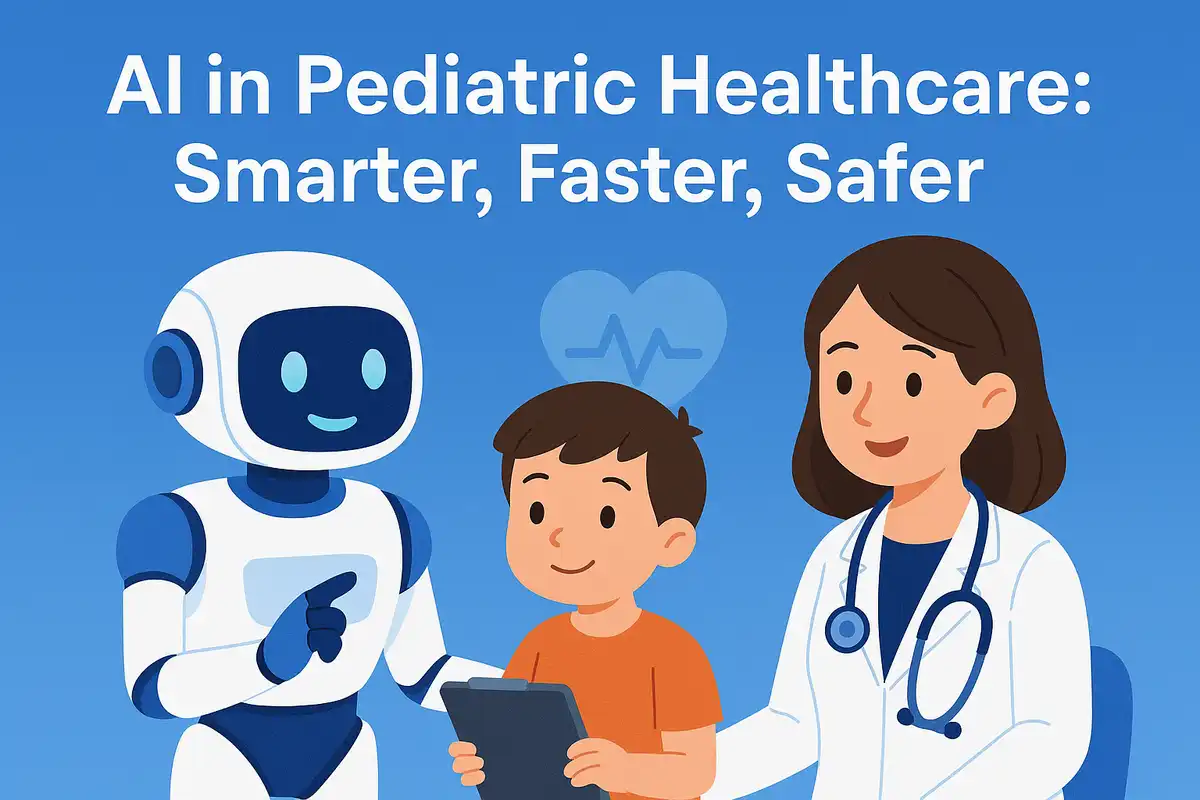Artificial Intelligence (AI) is shaping the future—and children are among its most important beneficiaries. From personalized learning platforms to AI-powered safety tools, mental health support, and assistive technologies, AI is improving the quality of life for children in ways unimaginable just a few years ago.
In this blog, we explore how AI is helping children thrive—academically, emotionally, and physically—while also addressing some of the ethical concerns surrounding its use.
AI in Education: Personalized Learning for Every Child
Traditional education often takes a one-size-fits-all approach, but every child learns differently. AI is revolutionizing learning by offering personalized educational experiences that adapt to a student’s pace and preferences.
How AI Enhances Learning
- Adaptive Learning Platforms: Tools like Khan Academy, Duolingo, and BYJU’S use AI to tailor lessons based on a child’s performance. Struggling students receive extra guidance, while advanced learners move ahead faster.
- AI-Powered Tutors: Platforms such as Squirrel AI provide real-time feedback and customized study plans, helping children grasp difficult subjects more easily.
- Language Learning Apps: Apps like Lingokids leverage gamification and voice recognition to make language acquisition fun and interactive.
Benefits of AI in Education
- ✔ Personalized and effective learning journeys
- ✔ Increased engagement through gamified content
- ✔ Support for children with learning disabilities

AI for Online Safety: Protecting Children in the Digital Age
With more children spending time online, the risk of exposure to cyberbullying, inappropriate content, and online predators has increased. AI is playing a crucial role in ensuring digital safety.
How AI Safeguards Children Online
- Content Moderation: Platforms like YouTube Kids and TikTok use AI to filter and block inappropriate content automatically.
- Cyberbullying Detection: AI algorithms scan messaging platforms and social media for harmful language, alerting parents or moderators in real time.
- Parental Control Software: Tools like Bark and Qustodio use AI to monitor screen time, detect risky behavior, and provide actionable insights for parents.
Benefits of AI in Online Safety
- ✔ Safer digital spaces for children
- ✔ Early identification of harmful interactions
- ✔ Empowered parental control and supervision
AI for Mental Health: Supporting Children Emotionally
Childhood mental health challenges are rising, and early intervention is critical. AI is helping by offering accessible, stigma-free, and affordable mental health support.
How AI Supports Mental Health
- Therapy Chatbots: Apps like Woebot and Wysa provide children with emotional support through AI-driven conversational therapy.
- Emotion Recognition: Some schools use AI to monitor facial expressions and identify signs of stress, anxiety, or depression.
- Virtual Mental Health Assistants: These tools guide children through breathing exercises, mindfulness techniques, and stress-relief routines.
Benefits of AI in Mental Wellness
- ✔ Accessible and private mental health support
- ✔ Reduced stigma around emotional struggles
- ✔ Early detection of emotional distress
AI for Children with Special Needs: Creating Inclusive Learning
AI is opening up new possibilities for children with disabilities. From communication tools to learning aids, these technologies empower children to participate more fully in education and daily life.
AI Tools for Special Needs
- Speech Recognition for Non-Verbal Children: Apps like Proloquo2Go help non-verbal children communicate using symbols and AI-generated voice output.
- Autism Support Technologies: Tools like Cognoa aid in early autism detection, while robots like NAO assist children with autism in developing social skills.
- Reading Support for Dyslexia: Tools like Speechify use AI to convert text to speech, making reading more accessible.
Benefits of AI for Children with Disabilities
- ✔ Greater inclusion in education
- ✔ Increased independence and communication
- ✔ Customized learning experiences

AI in Pediatric Healthcare: Smarter, Faster, Safer
Healthcare for children is benefiting from AI in areas like early diagnosis, remote care, and customized treatment plans—improving both speed and accuracy of care.
AI in Child Healthcare
- Early Disease Detection: AI analyzes medical data to detect conditions like ADHD, diabetes, and asthma in their early stages.
- Symptom Checkers: Apps such as Ada Health guide parents on whether symptoms require a doctor’s visit.
- AI in Neonatal Care: Hospitals are using AI systems to monitor premature babies, predicting complications before they arise.
Benefits of AI in Pediatric Care
- ✔ Early and accurate diagnosis
- ✔ Reduced hospital visits via telehealth
- ✔ Improved outcomes for young patients
Ethical Concerns and Challenges
While AI offers immense benefits for children, it also raises important ethical questions that society must address.
1. Data Privacy
Children’s data is extremely sensitive. AI systems collect and analyze vast amounts of personal information.
Solution: Enforce privacy laws like COPPA (Children’s Online Privacy Protection Act) and design AI systems with strong data protection protocols.
2. Over-Reliance on Technology
Too much exposure to AI tools and screens can hinder social development and reduce physical activity.
Solution: Strike a balance between technology use and real-world interaction. Encourage outdoor play and human-led learning.
3. Bias in AI Algorithms
AI can unintentionally inherit and amplify social biases from the data it’s trained on.
Solution: Use diverse datasets and ethical AI development practices to ensure fairness and inclusivity.
Shaping a Better Future for Children with AI
AI is already changing children’s lives for the better—enabling smarter education, safer online experiences, better mental health support, and inclusive care for children with special needs. However, the key to unlocking AI’s full potential lies in ethical development, balanced use, and collaborative action from parents, educators, developers, and policymakers.
By working together, we can create a future where AI empowers every child to thrive.

